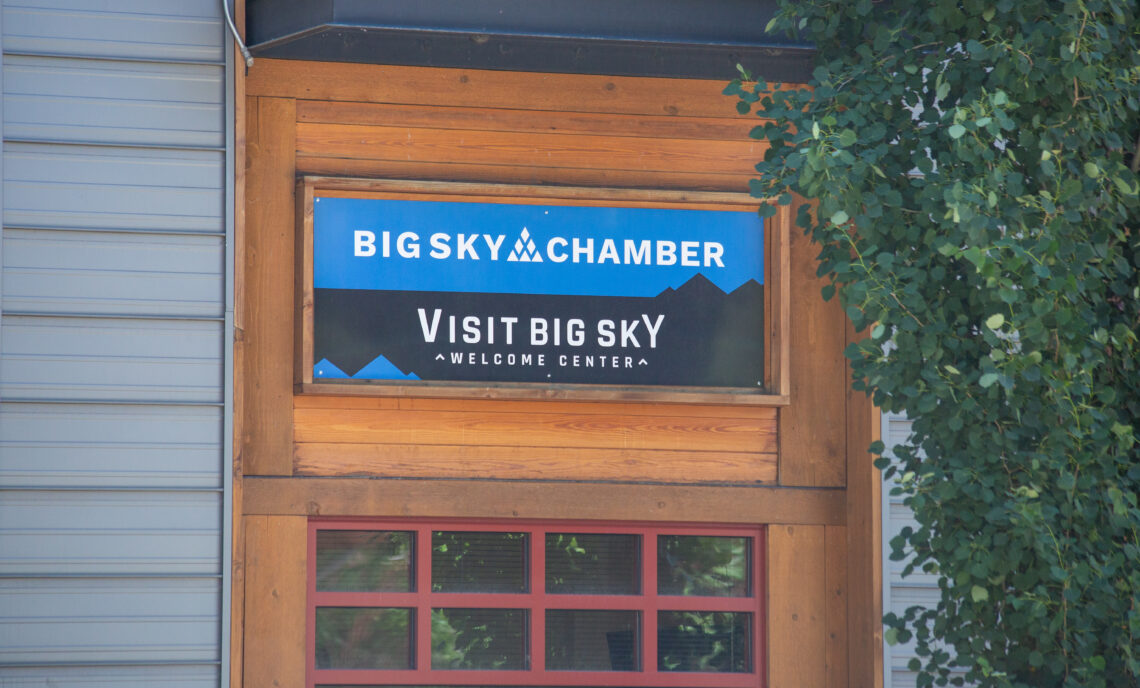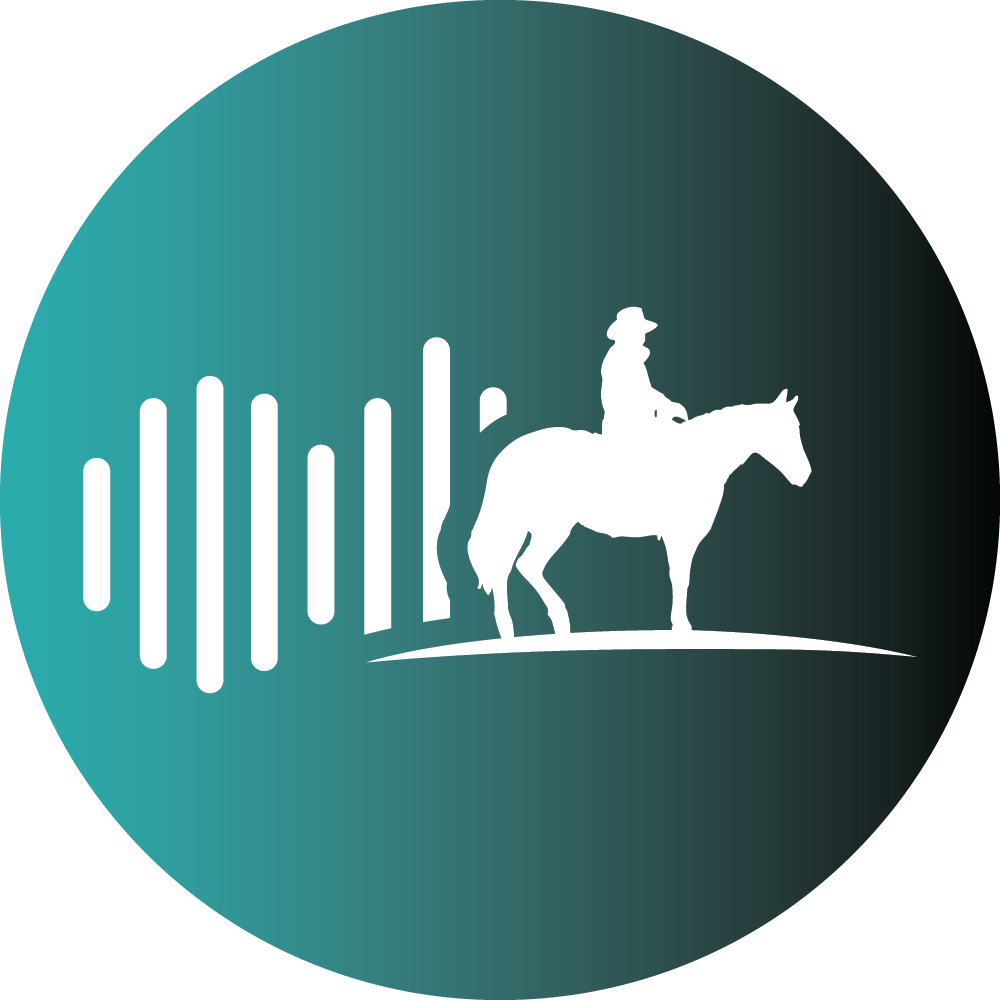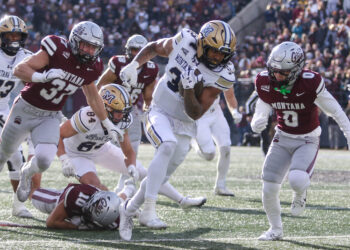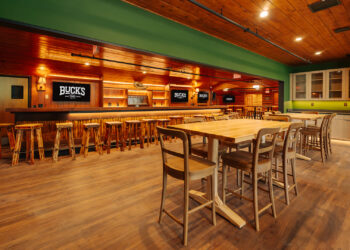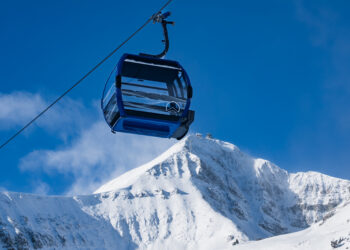Visit Big Sky receives $25K from Resort Tax to implement first-of-its-kind TBID
By Jack Reaney SENIOR EDITOR
A potential new fee could collect a few dollars per night from guests of Big Sky hotels and short-term rentals, totaling roughly $2 million per year for direct reinvestment into tourism promotion, events and other business developments.
Visit Big Sky is leading the effort to create a tourism business improvement district, or TBID, and applied for the maximum $25,000 available from the Resort Tax microgrant program to support the costs of creating a TBID. The Big Sky Resort Area District board approved the microgrant on Wednesday, Sept. 10.
If the TBID is successfully created, it would collect an assessment of roughly $3 or $4 per night from visitors, according to Brad Niva, CEO of Visit Big Sky and the Big Sky Chamber of Commerce. He reported “verbal support” from all of Big Sky’s hotels, and Big Sky Resort.
“It’s a pretty common funding model for tourism communities around the state,” Niva said in his presentation to the BSRAD board. “Currently, to date, there’s 20 TBIDs across the state of Montana. Big Sky does not have one—we think it’s something valuable to add to our toolkit with regards to funding tourism, events, offseason promotion, things like that.”
Niva explained that state law allows Big Sky to create the first TBID of its kind in Montana: one that collects an assessment from not only hotels, but also short-term rentals such as Airbnb and VRBO, of which Big Sky has roughly 1,500.
“This process has been going on for three years behind the scenes,” Niva said, noting that legal fees have been “heavy” with roughly $30,000 spent on setting up the TBID.
He said it’s legally allowed for Visit Big Sky to repay its $25,000 grant to Resort Tax once the TBID collects enough funds—in approving the grant, the board stipulated that Visit Big Sky must reimburse within 12 months of district’s creation.
Daniel Bierschwale, BSRAD executive director, spoke clearly in favor of that option.
With more wind in its sails from the Resort Tax microgrant, Niva estimated the TBID could be up and running by summer 2026.
A tune-up for Big Sky’s economic engine
Niva told EBS that Big Sky’s destination marketing is underfunded compared to peers: Sun Valley, Idaho has a budget of $3.2 million per year to attract visitors; Jackson Hole, Wyoming spends $6.7 million; Park City spends $9 million; and Big Sky has only $1.8 million to work with, he explained.
The TBID collections could add roughly $2 million per year, he estimated.
Potential applications of TBID funding include: event costs like transportation, security and space rental; community beautification; partnerships with airlines to attract and promote direct flights to Bozeman; and investments to attract and create events—particularly offseason events to sustain a year-round economy, as Niva noted Big Sky hotel occupancy drops to roughly 30% during those periods. Furthermore, in Bozeman, a TBID provided $1 million for a warming shelter to accommodate unhoused people as the city changed its urban camping policy, highlighting the flexibility of funds.
The TBID would be governed by two boards of directors, one comprised of short-term rental operators and another with hoteliers.
Thad Beaty, who manages arts and culture for Lone Mountain Land Company, voiced his support for the TBID after the meeting in a discussion with EBS.
“I see the TBID as a pretty tremendous next step for us,” Beatty said. “As we’re looking at maintaining a beautiful place for locals and also finding ways to make sure that this economy, our local economy, is thriving year-round.”
The opportunity is exciting to Beatty, whose dream and vision is to enhance Big Sky’s vibrance, especially nighttime attractions to complement the area’s well-established and attractive outdoor experiences.
“For us to make these events happen, infrastructure is just critical,” he said, referring to cost-prohibitive amenities like tents and public restrooms. “… A TBID puts us in a position to [use] a fund, a block of money that can help us tell our story nationally, and support some of these… opportunities that we have and want to initiate.”
TBID revenue would allow Visit Big Sky to reduce its annual funding request to Resort Tax, allowing BSRAD to focus on funding vital nonprofits, initiatives, and government services.
“Overall, it drives a new level of economic impact and economic growth that we’ve been lacking in, or is still under development,” Beatty said.



